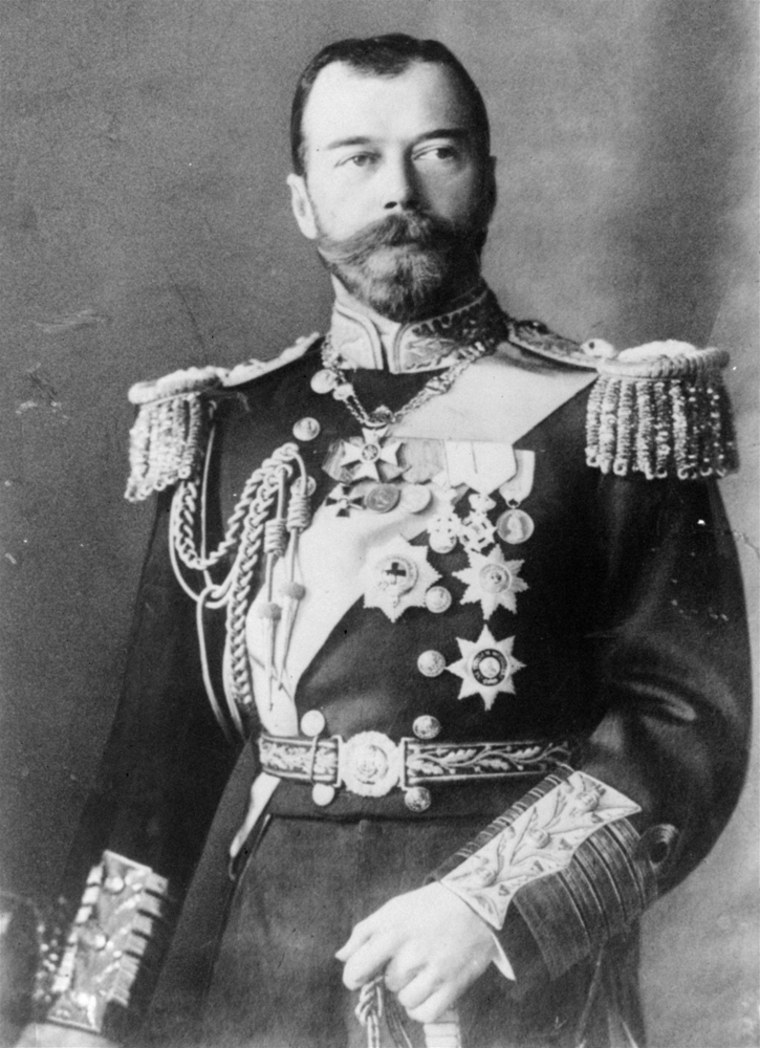The Russian Supreme Court on Wednesday declared the last czar and his murdered family to be victims of political repression — a decision that helps Russia move toward closing a chapter in its tortured history.
The decision by the court's appeals panel ends years of efforts by Czar Nicholas II's descendants to get authorities to reclassify the killings from premeditated murder.
Prosecutors, lower courts and even the Supreme Court's main body had repeatedly rejected the appeals, saying the Romanov family had not been executed for political reasons.
Pavel Odintsov, a spokesman for the court, said the court's presidium accepted the appeals of the Romanov descendants to "rehabilitate" the royal family, declaring them victims of "groundless repression."
The presidium, the Supreme Court's highest appeal panel, has the final word for legal appeals in Russia.
Detained and killed
Nicholas II abdicated in 1917 as revolutionary fervor swept Russia, and he and his family were detained.
The czar, his wife Alexandra and their son and four daughters were fatally shot by a Bolshevik firing squad on July 17, 1918, in a basement room of a merchant's house where they were held in the Ural Mountains city of Yekaterinburg.
German Lukyanov, a lawyer for the Romanov family, said the decision was based on law and said no politics were involved.
"In the end this will help the country, this will help Russia understand its history, help the world to see that Russia observed its own laws, help Russia in its development to become a civilized country," he told The Associated Press.
The remains of Nicholas II and Alexandra and three siblings were unearthed in 1991 and reburied in the imperial resting place in St. Petersburg.
Meanwhile, Nicholas' heir, Alexei, and his daughter, Grand Duchess Maria, remained missing for decades until bone shards were unearthed in 2007 in a forest outside Yekaterinburg, not from the place where the rest of the family's mutilated remains had been scattered.
Officials said earlier this year that DNA testing had confirmed the shards belonged to Alexei and Maria.
The Russian Orthodox Church made all seven of them saints in 2000.
Adoration of Nicolas' aura
The decision to "rehabilitate" a person in Russia carries political, legal and cultural significance and Wednesday's decision for many will help the country come to terms with the violent events that ushered in 70-plus years of Communist rule.
Many Russians revere the last czar as the embodiment of what is perceived to be the country's noble, pre-revolutionary past; the church's 2000 declaration that he and his family were martyrs has added the adoration of pious Orthodox believers to Nicholas' aura.
However, for many older Russians raised under Soviet ideology the czar represented imperial Russia's excesses and brutality.
Some historians had speculated that the Russian government was reluctant to reclassify the czar's killing out of fear that descendants would claim state property, such as the State Hermitage Museum, as compensation. The museum is housed in what used to be the royal Winter Palace.
Rehabilitation in Russia reached a crescendo in the years after the Soviet collapse. Many of those who were shot or sent to prison camps under Communist rule were exonerated of the crimes they were accused of at the time.
